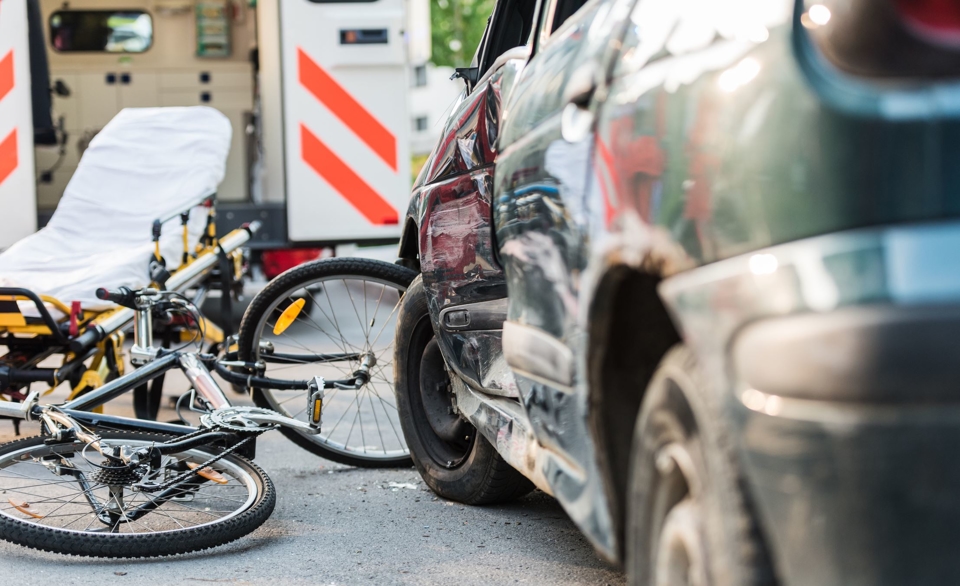Dram Shop Laws Explained
Dram shop laws form an essential part of the legal landscape surrounding drunk driving accidents. These laws are designed to hold establishments, such as bars and restaurants, accountable for serving alcohol to visibly intoxicated individuals or minors who then go on to cause harm, such as in a drunk driving accident. The rationale behind these laws is to encourage responsible alcohol service and reduce alcohol-related incidents. However, it's important to note that dram shop laws vary significantly from state to state. Some states have stringent regulations, while others may have more lenient or even non-existent dram shop laws. This variation can have significant implications for both victims seeking justice and establishments aiming to protect themselves from liability. Understanding the specifics of dram shop laws in your state, such as New Jersey, is crucial for anyone involved in a drunk driving accident.
Negligence and Duty of Care
Negligence is a key concept in personal injury law, and it plays a critical role in cases involving drunk driving accidents. Bars and other alcohol-serving establishments have a duty of care to their patrons and the community. This duty of care means they must take reasonable steps to ensure they do not serve alcohol to individuals who are already intoxicated or to minors. When a bar breaches this duty by serving alcohol irresponsibly, they can be held liable for any resulting harm. This breach of duty is considered negligence, and it forms the basis of many legal claims against bars in drunk driving cases. Establishing negligence involves demonstrating that the bar's actions directly contributed to the accident, which can be a complex legal challenge requiring thorough evidence and expert testimony.
Understanding Third-Party Liability
Third-party liability is an important aspect of drunk driving cases that often goes overlooked. In the context of a drunk driving accident, third-party liability refers to the responsibility that a bar or establishment may bear for the actions of a patron who causes an accident after being served alcohol. Legal precedents have established that bars can be held accountable if it can be shown that they served alcohol to a visibly intoxicated person who then caused harm. This concept extends the scope of liability beyond the individual who directly caused the accident, recognizing the role that alcohol-serving establishments can play in preventing such incidents. Understanding third-party liability is crucial for victims seeking compensation, as it opens up additional avenues for legal recourse.
Filing a Claim Against a Bar
Filing a legal claim against a bar for a drunk driving accident involves several critical steps. The process begins with gathering evidence, such as receipts, surveillance footage, and witness testimonies, to build a strong case. Identifying witnesses who can testify to the patron's level of intoxication and the bar's actions is also vital. Once the evidence is collected, the next step is to file a formal complaint with the court. This is where the expertise of a qualified attorney becomes invaluable. An attorney specializing in dram shop and personal injury law can navigate the complexities of the legal system, ensuring that all necessary documentation is filed correctly and on time. Legal representation is crucial, as it significantly increases the chances of a successful outcome.
Proving Fault and Causation
Proving fault and causation in a lawsuit against a bar can be challenging. The plaintiff must demonstrate that the bar's actions directly contributed to the accident. This involves showing that the bar served alcohol to a visibly intoxicated person, who then caused the accident. Evidence such as receipts showing the amount of alcohol served, surveillance footage capturing the patron's behavior, and witness testimonies can be instrumental in establishing fault. Additionally, expert witnesses, such as toxicologists, may be called upon to provide insights into the patron's level of intoxication at the time of service. Successfully proving causation requires a thorough understanding of the legal standards and a strategic approach to presenting evidence.
Potential Outcomes and Settlements
The potential outcomes of suing a bar for a drunk driving accident can vary widely. In some cases, the bar may choose to settle out of court, offering compensation to the victim in exchange for dropping the lawsuit. Settlements can be beneficial for both parties, as they avoid the time and expense of a court trial. However, if a settlement cannot be reached, the case may proceed to trial, where a judge or jury will determine the outcome. Factors such as the strength of the evidence, the severity of the injuries, and the bar's insurance coverage can influence the compensation amount and the likelihood of success. Victims should work closely with their attorney to evaluate the potential outcomes and make informed decisions throughout the legal process.
Statute of Limitations
One of the most critical considerations in filing a lawsuit against a bar is the statute of limitations. This legal time limit dictates how long a victim has to file a claim after the incident occurs. The statute of limitations varies by state, and failing to file within this timeframe can result in the loss of the right to pursue legal action. In New Jersey, for example, the statute of limitations for personal injury claims is typically two years. Understanding these time limits and acting promptly is essential for victims seeking compensation. Consulting with an attorney early in the process can help ensure that all legal deadlines are met.
Insurance and Financial Recovery
Insurance plays a significant role in the financial recovery process for victims of drunk driving accidents. Bars typically carry liability insurance to cover potential claims, but the extent of coverage can vary. Understanding the types of insurance policies that bars have and how they apply to dram shop claims is crucial for victims seeking compensation. An experienced attorney can help navigate the complexities of insurance claims, ensuring that victims receive the maximum compensation available under the policy. Additionally, exploring other potential sources of recovery, such as the driver's insurance, can further enhance the financial recovery process.
Public Policy and Social Implications
Holding bars accountable for drunk driving accidents has broader social and public policy implications. These cases can serve as a deterrent, encouraging establishments to adopt more responsible alcohol service practices. By pursuing legal action, victims can contribute to community safety initiatives and promote awareness of the consequences of irresponsible alcohol service. Additionally, successful lawsuits can lead to stricter enforcement of dram shop laws, ultimately reducing the incidence of drunk driving accidents. Understanding the social impact of these cases can empower victims to take action and advocate for positive change in their communities.
Finding the Right Legal Representation
Selecting the right attorney is a crucial step in pursuing a dram shop claim. Victims should seek out attorneys with experience and expertise in dram shop and personal injury law. An attorney with a proven track record in these cases can provide valuable insights and guidance throughout the legal process. It's important to choose a lawyer who is familiar with the specific laws and regulations in your state, such as those in New Jersey. A qualified attorney can help victims navigate the complexities of the legal system, ensuring the best possible outcome for their case.
Resources for Victims and Families
In the aftermath of a drunk driving accident, victims and their families may need additional support and resources. Various organizations offer assistance, including support groups, counseling services, and legal aid organizations. These resources can provide emotional support, financial assistance, and legal guidance to help victims and their families cope with the aftermath of the accident. Accessing these resources can be an important step in the recovery process, providing the support needed to move forward.
Educational and Advocacy Organizations
Educational and advocacy organizations play a vital role in raising awareness about drunk driving and advocating for stricter enforcement of dram shop laws. These groups work to educate the public about the dangers of drunk driving and the importance of responsible alcohol service. By partnering with these organizations, victims and their families can become advocates for change, contributing to legislative efforts and community safety initiatives. Engaging with these groups can provide valuable support and amplify the impact of legal action.
Can Bars Be Sued in All States?
A common question that arises in drunk driving cases is whether bars can be sued for serving alcohol to intoxicated individuals in every state. The answer is not straightforward, as dram shop laws vary significantly across the United States. While some states have robust dram shop laws that allow for legal action against bars, others may have more limited or no such laws. Understanding the specific legal framework in your state is crucial for determining the viability of a lawsuit. Consulting with an attorney familiar with the laws in New Jersey can provide clarity and guidance on this issue.
What Evidence Is Needed to Sue a Bar?
Building a strong case against a bar requires gathering compelling evidence. Key pieces of evidence include receipts showing the amount of alcohol served, surveillance footage capturing the patron's behavior, and witness testimonies from individuals who observed the patron's level of intoxication. Additionally, expert witnesses, such as toxicologists, may be called upon to provide insights into the patron's level of intoxication at the time of service. Collecting and presenting this evidence effectively is crucial for proving fault and causation in a dram shop claim.
How Long Does the Legal Process Take?
The timeline for resolving a dram shop claim can vary depending on several factors. The process typically begins with filing a claim, followed by a period of discovery where evidence is gathered and reviewed. If a settlement cannot be reached, the case may proceed to trial, where a judge or jury will determine the outcome. The duration of the legal process can be influenced by factors such as the complexity of the case, the availability of evidence, and the willingness of the parties to negotiate a settlement. Working with an experienced attorney can help streamline the process and ensure that the case is resolved as efficiently as possible.
If You Have Been Injured In a Drunk Driving Accident, Call (856) 502-1655
If you or a loved one has been affected by a drunk driving accident, Rosner Law Offices is here to help. Our experienced team of car accident attorneys is dedicated to advocating for your rights and securing the compensation you deserve. Contact us today to schedule a consultation and learn more about how we can assist you in your legal journey.
Rosner Law Offices, P.C. is available by phone at (856) 502-1655 or you can always send us a message online.






.1).2307031455550.jpg)